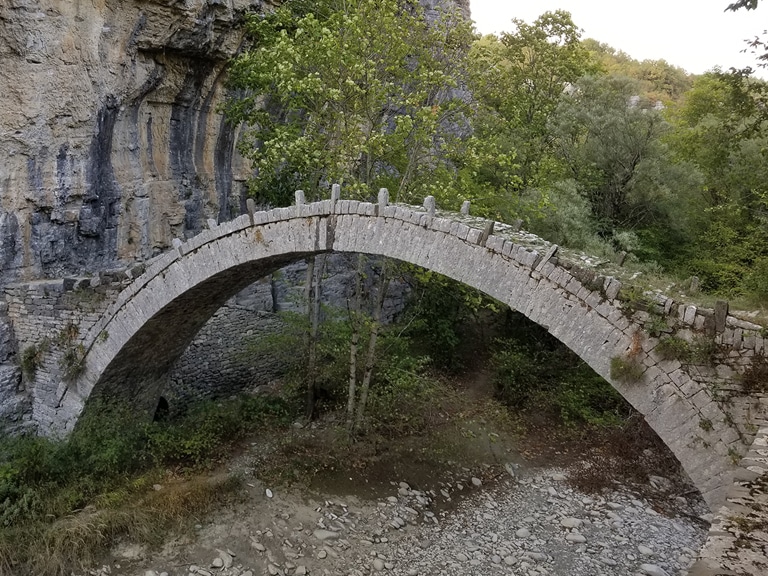
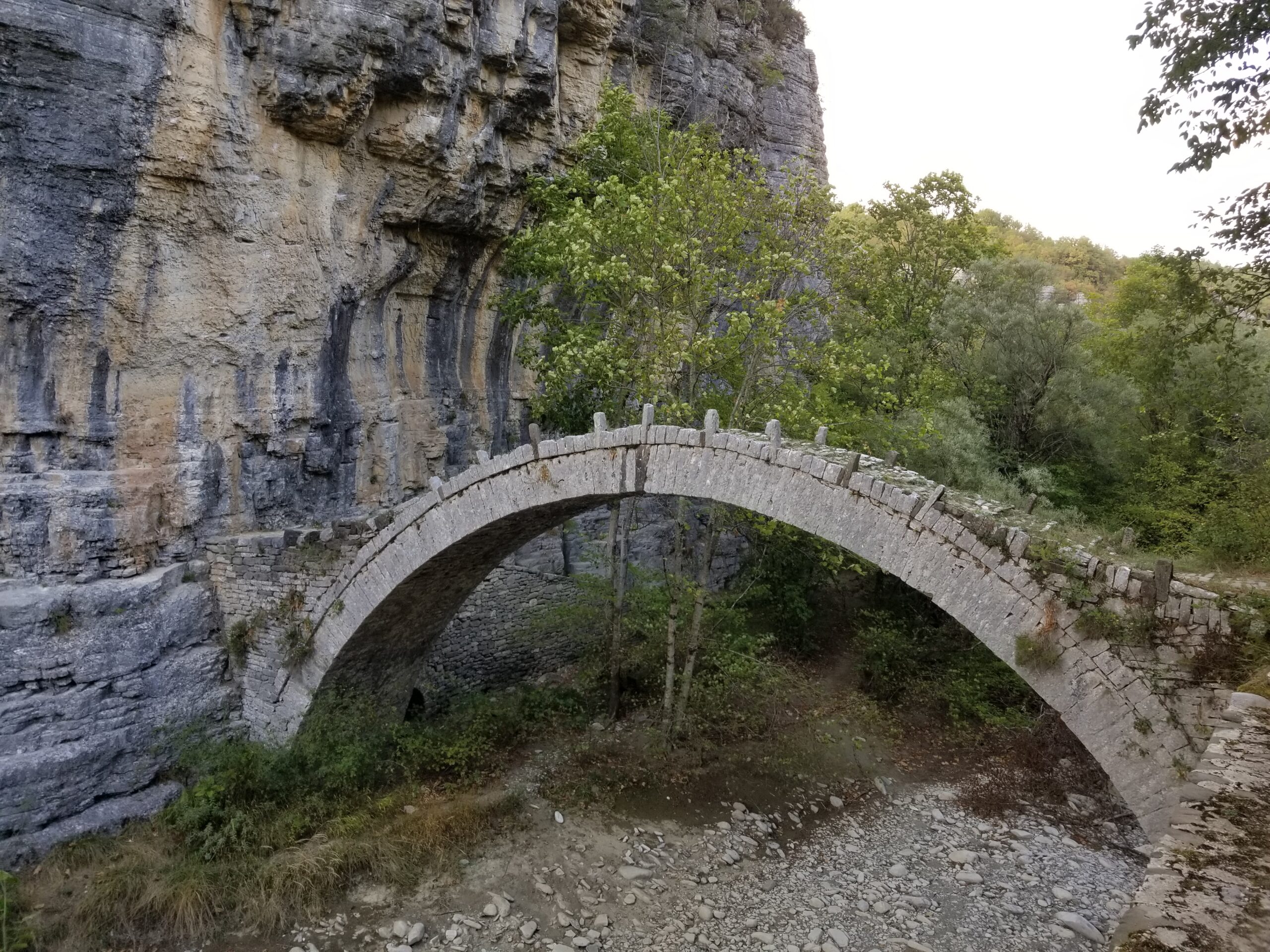
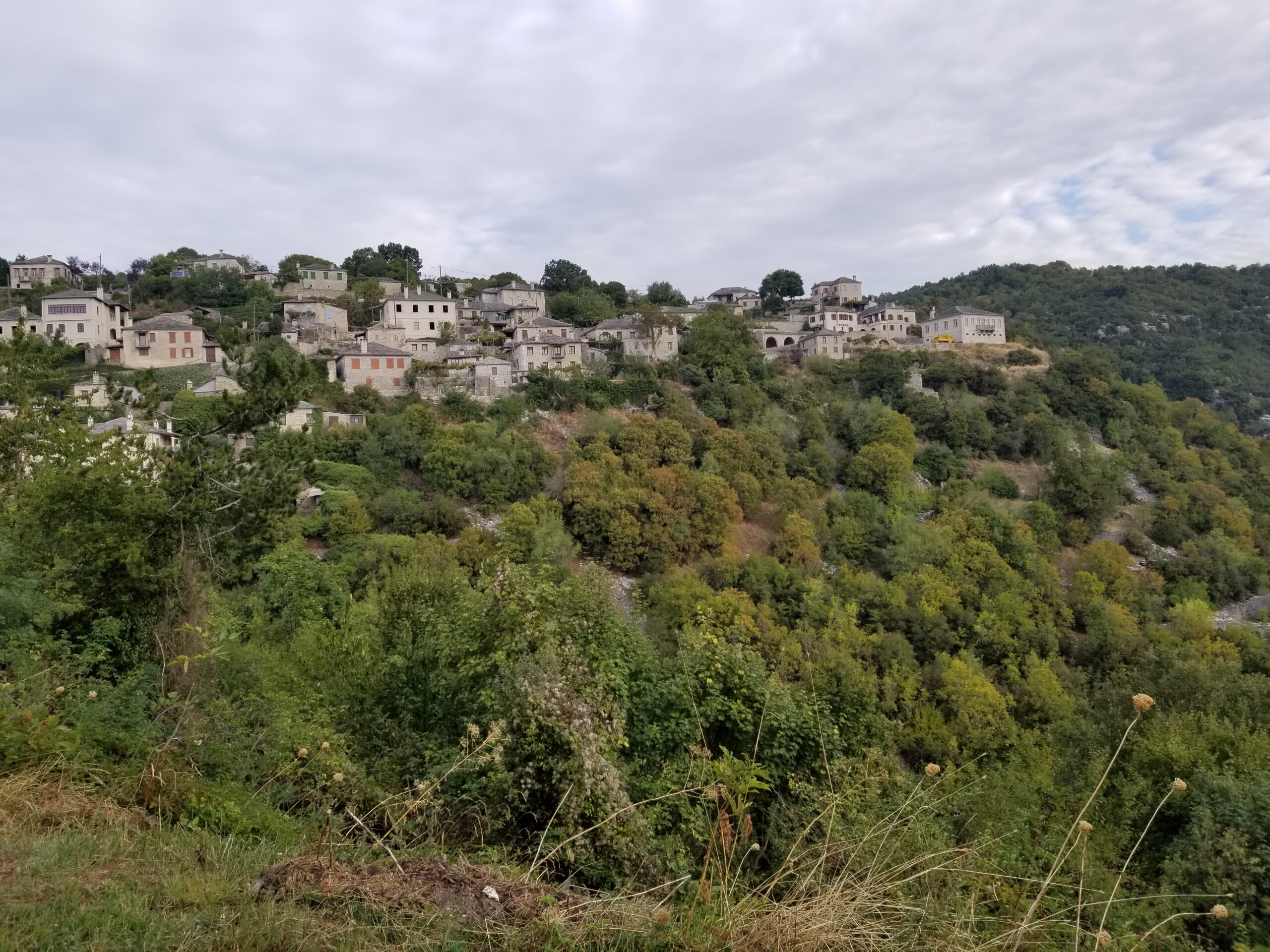
One day should be allocated specifically for exploring the stone bridges. Over 160 stone bridges were built on the territory of Zagori during the 18th and 19th centuries. The trail that explores six bridges starts from the village of Vitsa.

There is an old road dating back from the Turkish times that leads from village Vitsa to the first stone bridge.

The path passes by the chapel of Agios Nikolaos.

Next to the chapel there is a stunning viewpoint above the Vikos gorge.

Below the viewpoint, you can see the first stone bridge of Misios, which was built over the river Vikos.
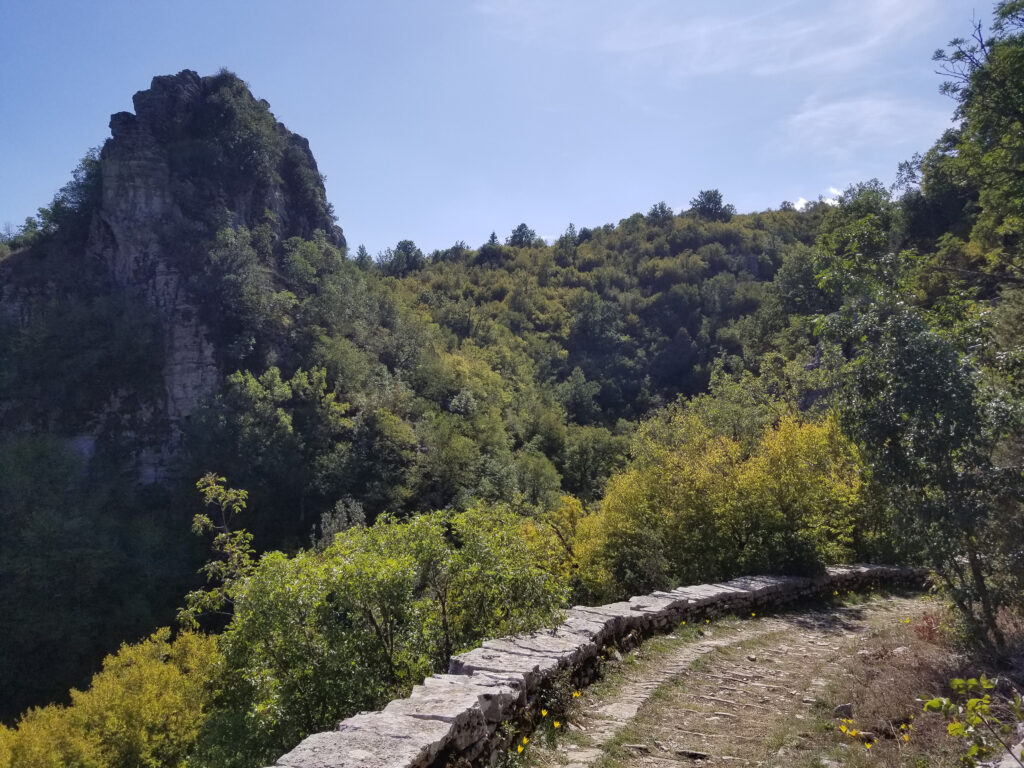
The old road, which was built when the other bridges were, goes down to…
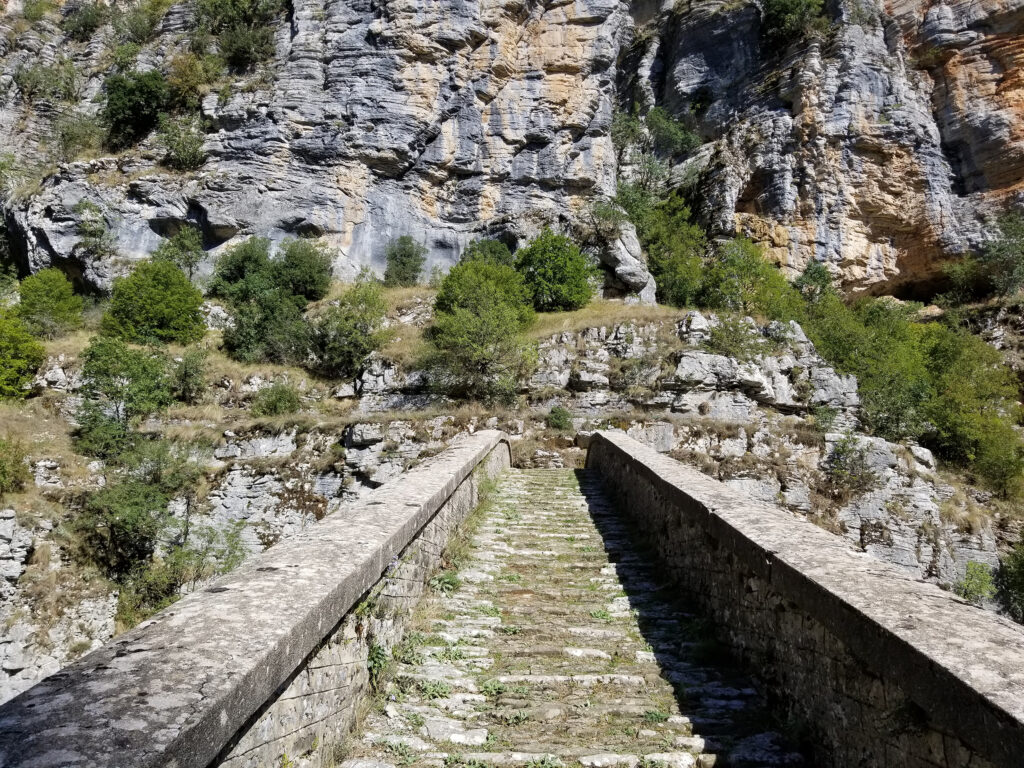
…the Misios bridge.
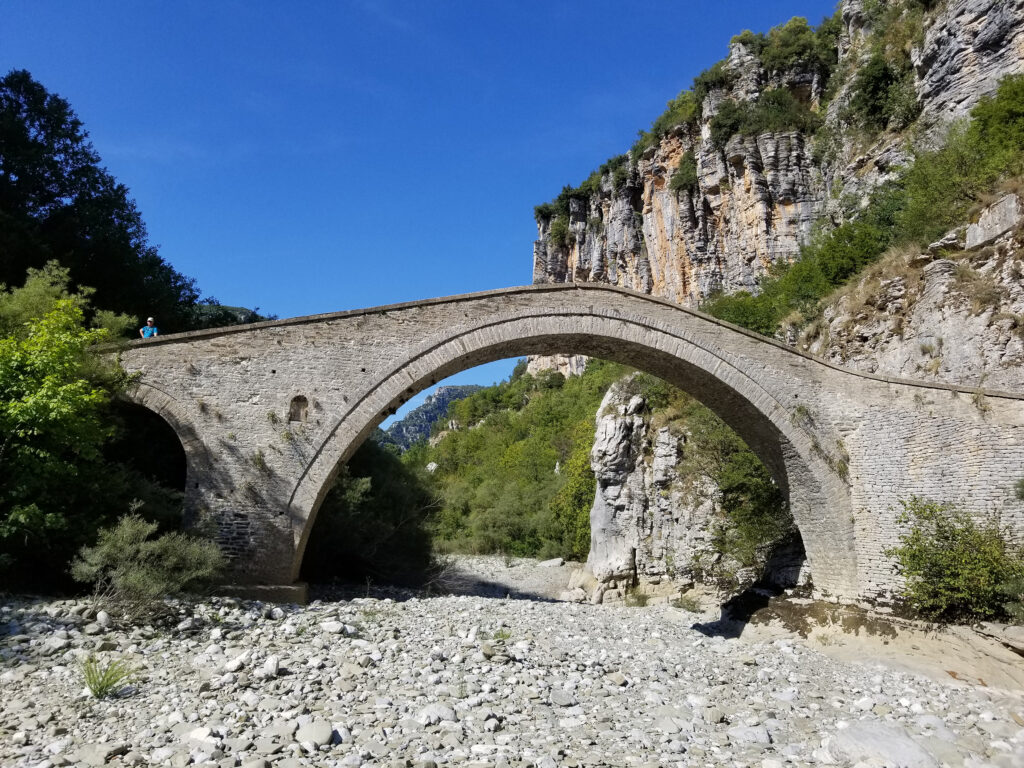
All of the bridges have similar architecture, they were built during the Turkish period, which is why they are similar to other bridges on the territory of the Balkans, such as the Old bridge in Mostar. They are all arched and each have one to three arcades (arches). Although they were built in an oriental style, the bridges were not built by Turks, but by local craftsmen from the city of Konica, while the financing was taken over by wealthy Greek merchants. The craftsmen from Konica, in order to protect their skills from being copied, founded a guild, which had a strict organization and a secret language, so that the secrets of their craft would not be revealed by other craftsmen. The guild consisted of smaller families, Buluki, and all families were united under the rule of a supreme leader. The masters from Konica were so skilled and popular that they were in demand throughout the Ottoman Empire, as far away as Egypt and Persia.

Shortly after crossing the Misos bridge, the road exits the canyon and….

reaches the village of Koukouli.

Old stone streets dating back from the 18th and 19th centuries.
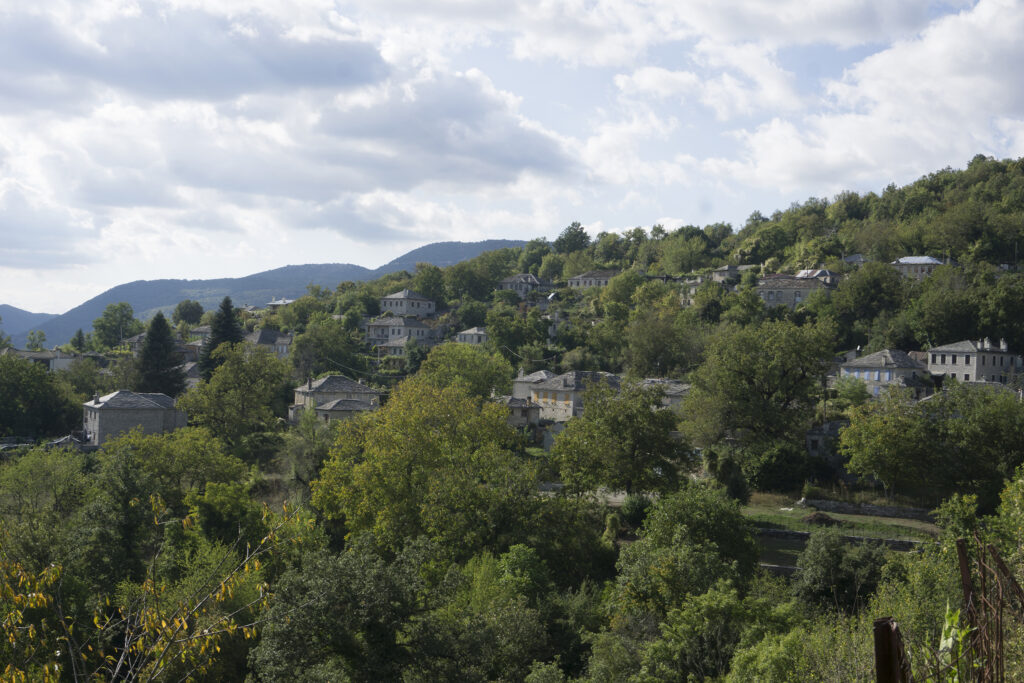
The path from Koukouli….

leads to the village of Kipi.

In Zagori it is common to come across monuments. During the Second World War, in 1940 the Italian-Greek war was fought here, when the Italian army attacked Greece from the direction of Albania. It was also here that the conflict during the Greek Civil War took place, 1946-1949., fought among the communists and the government in Athens.
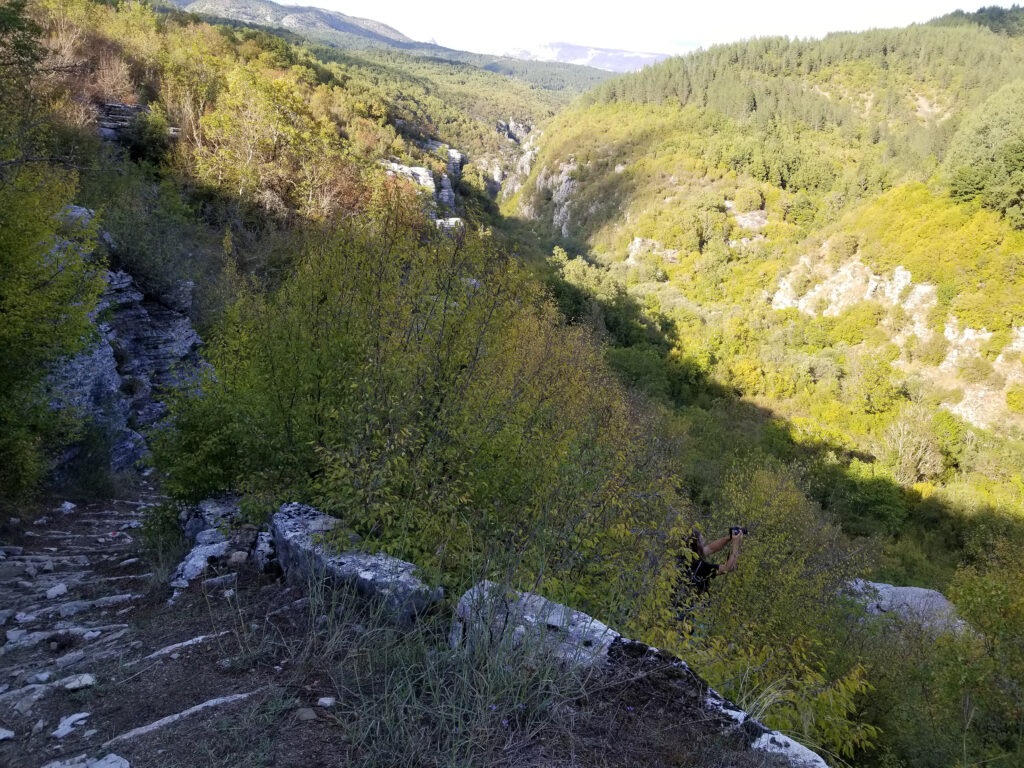
The old road descends towards the river Vikakis and the village of Kipi.
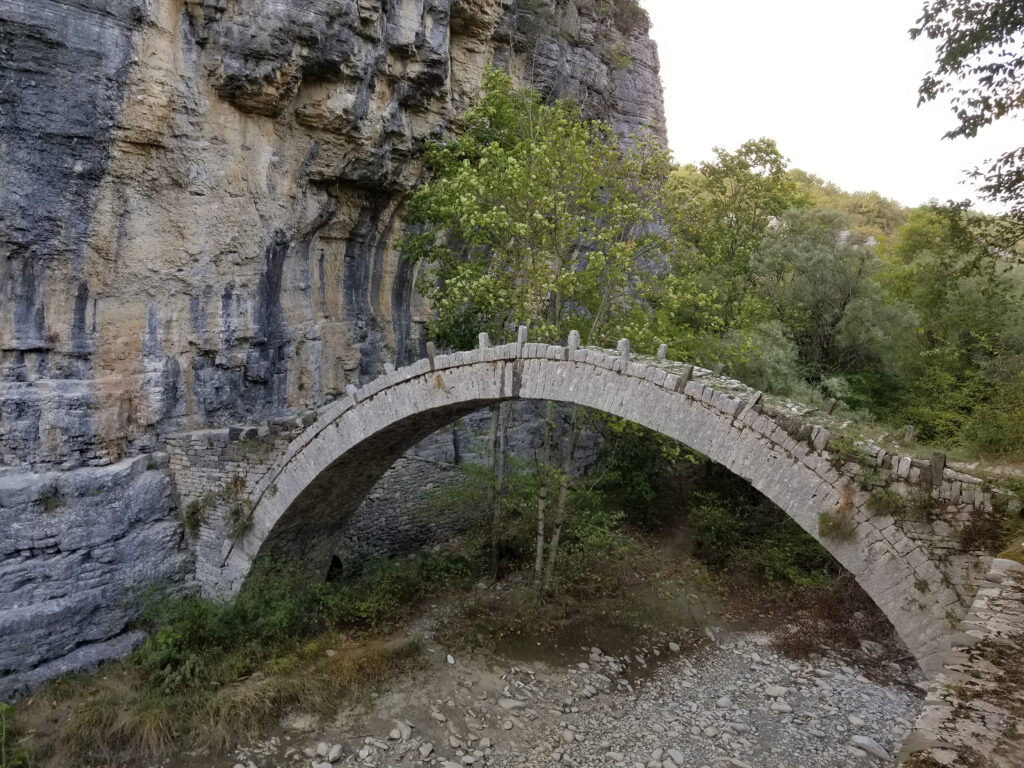
Kontodimos Bridge was built on the Vikakis River. It is often seen on these bridges that the stones that are placed vertically along the edge of the bridge are missing. They were not destroyed by the time, but by a tradition. For a long time, it was believed that in the event of a miscarriage, a woman should take a stone from the bridge and throw it into the river, so that the miscarriage would not happen again. This was done out of the belief that the river was to blame for the miscarriage and that it must be punished by it. In the pagan belief, which was prevalent among the local population, the river was the god and protector of fertility, and it deliberately caused abortions in women, in order to punish people for being offended by the construction of the bridge.

The village Kipi is one of the most beautiful villages in Zaogri.
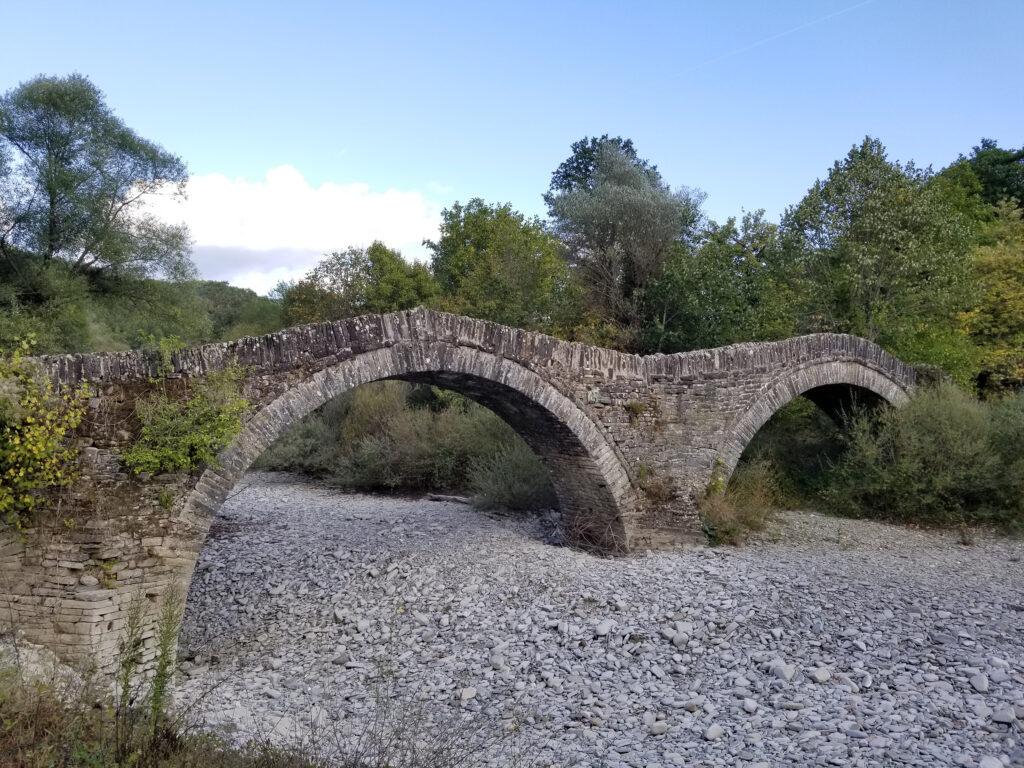
The next bridge is Milos.

The bridge has two arcades and was originally built as a wooden bridge in the 18th century. Later in the 19th century, it was reconstructed and built of stone.
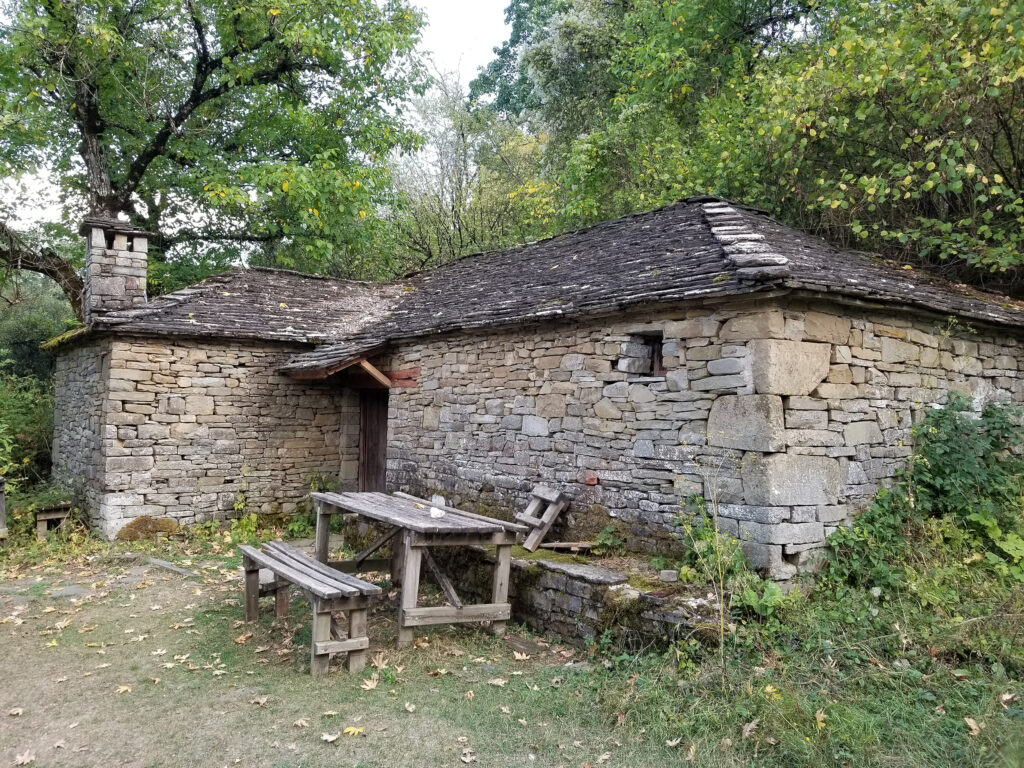
Next to the bridge of Milos there is an old water mill.

Next comes the Plakidas bridge.
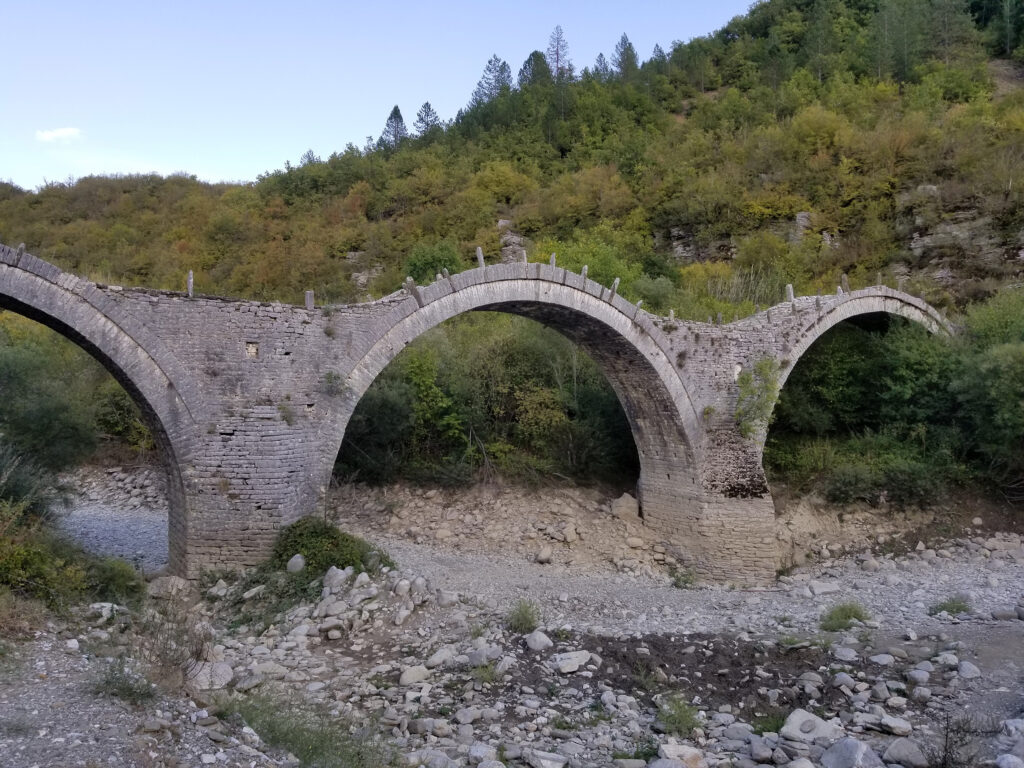
It is interesting that this bridge has three arcades.
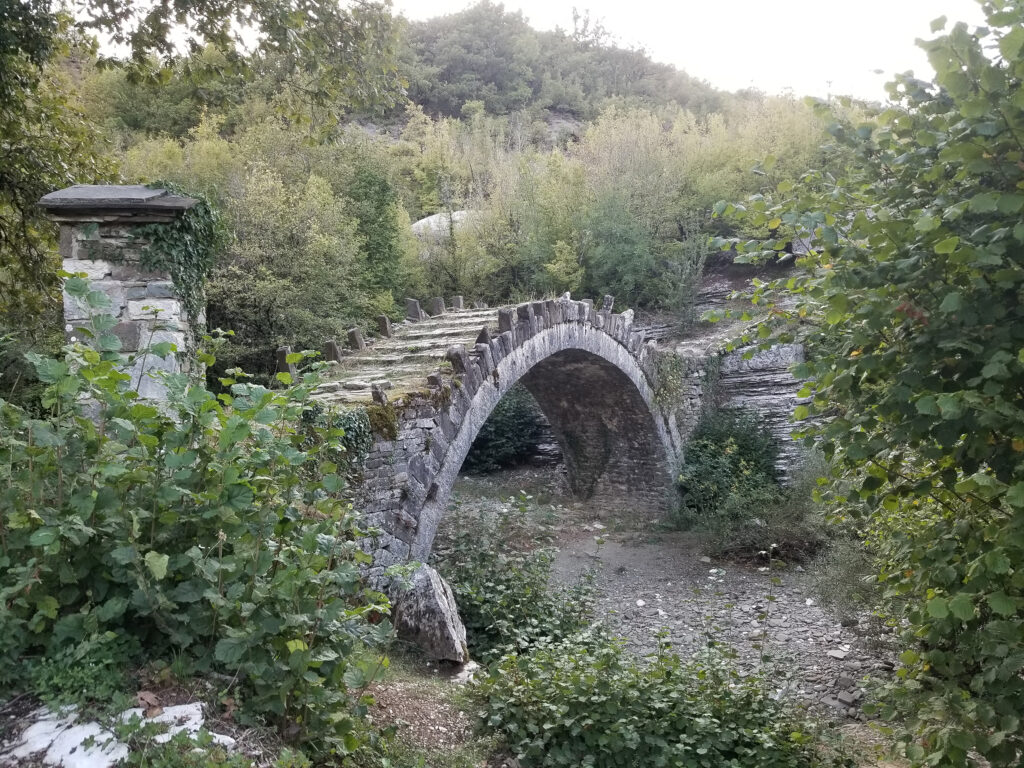
Captain Arkudis bridge was built in 1806.

The bridge was named after Captain Arkudis, who lost his life at this place during the war against the Turks. Zagori, as well as the whole of Epirus, was acquired by the Turks in the 15th century, it became a part of the modern Greek state after the First Balkan War , 1912-1913. years.
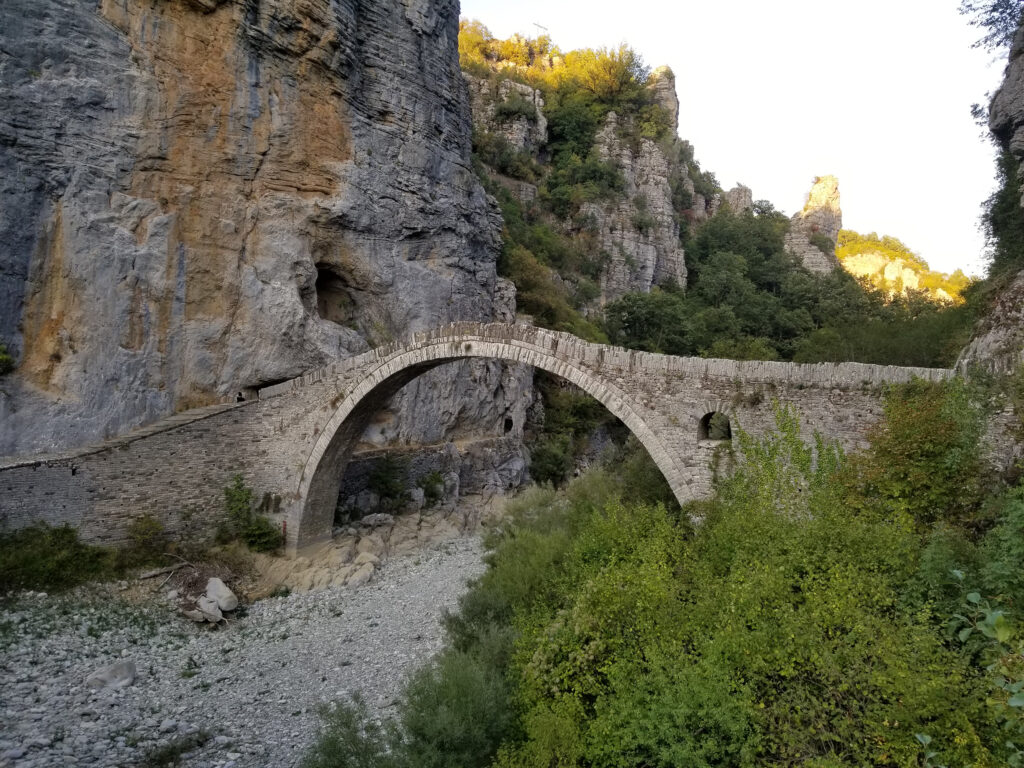
The most famous bridge is Kokoros, built in 1750 in order to connect the villages of Zagori with Ioannina, which was the centre of Turkish administration in Epirus.

Near stone bridges are Rogovos monastery and Vikakis canyon.

The monastery was built in the 11th century, but for an unknown reason it was destroyed and rebuilt in the 18th century. The name Rogovos is of Slavic origin and means “steep place”. During the Turkish period, it was the religious and political centre of the local Greeks, who sought autonomy. Unfortunately, the monastery church is closed for most of the year.

A path descends from the monastery to ….

….Vikaki gorge.

Vikaki canyon in translation means “smaller Vikos”. Vikaki is much narrower and not as deep as Vikos.
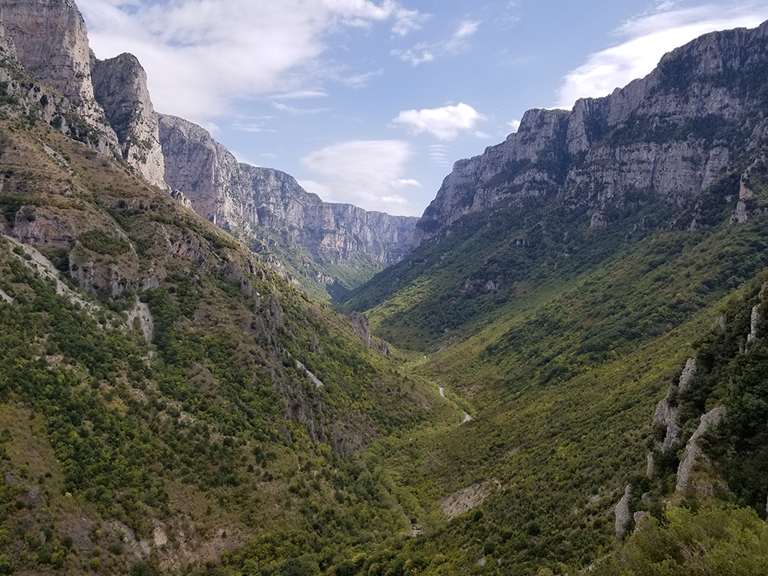
In Zagori, there is a National Park named the Vikos-Aos, with the famous Vikos Gorge. The Gorge is 31 km long, with a maximum de
Read More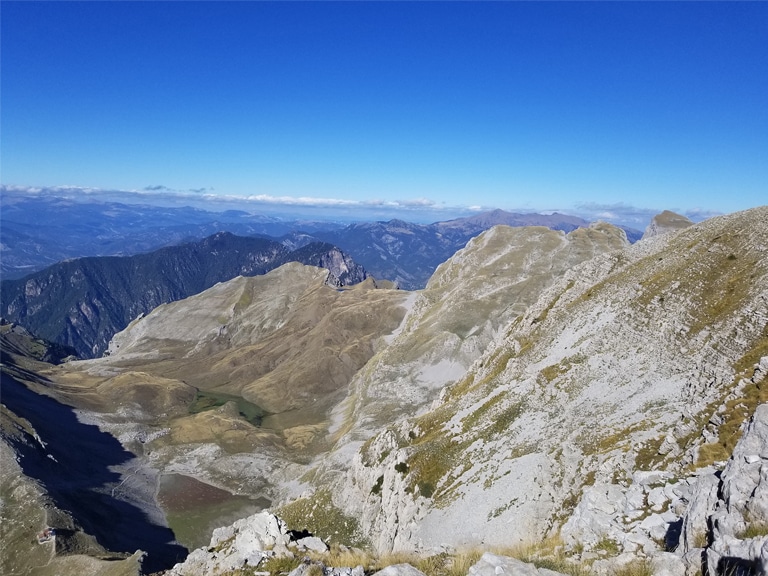
Most popular hiking trail on Mountain Tymfi starts from village Micro Papigo, from which you can climb to the peaks Astraka (2,4
Read More